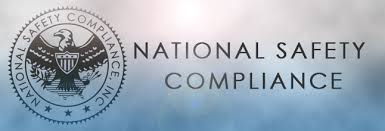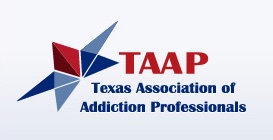 Transitions Counseling SAP / DOT Services are conducted at our office by Qualified Substance Abuse Professionals. The US Dept. of Transportation requires specialized training for Substance Abuse Professionals (SAP) conducting DOT compliant substance evaluations for employees in safety sensitive duties. In addition to substance abuse certification, DOT / SAP’s must complete 12-hours of specialized training every three years and pass a national exam specific to DOT guidelines. Our SAP counselors have over 20 years of experience working in the field of substance abuse.
Transitions Counseling SAP / DOT Services are conducted at our office by Qualified Substance Abuse Professionals. The US Dept. of Transportation requires specialized training for Substance Abuse Professionals (SAP) conducting DOT compliant substance evaluations for employees in safety sensitive duties. In addition to substance abuse certification, DOT / SAP’s must complete 12-hours of specialized training every three years and pass a national exam specific to DOT guidelines. Our SAP counselors have over 20 years of experience working in the field of substance abuse.
We will schedule most DOT/SAP evaluations within 24-48 hours, usually on the same day of your call. We will provide a written report with formal recommendations within 48 hours of the evaluation.
The DOT (Department of Transportation) requires companies employing individuals who hold commercial driver licenses (CDLs) and who work in safety-sensitive positions in transportation, oil and gas pipelines, railroads, or the aviation industry are subject to drug and alcohol testing, and requires DOT agencies to perform such testing.
The Department of Transportation (DOT) requires companies in the above industries to conduct the following types of drug and alcohol tests.
- Pre-Employment
- Random
- Post-Accident
- Reasonable Suspicion
- Return to Duty
As a covered entity, under CFR 49 Part 40, you are required to provide a referral to any employee requiring a SAP Assessment.
The S.A.P. process includes:
- 72 hour response time
- Face to face clinical assessment
- Referral for treatment and/or education (level determined by S.A.P.)
- S.A.P. monitoring of employee in treatment
- Face to face follow up clinical evaluation to determine if employee has complied
- Follow up testing schedule
- After care recommendations (as deemed necessary)
- Written reports sent to the employer’s designated representative keeping them abreast of referrals, monitoring, and recommendations
Failed Drug Test
- If you are covered by the DOT and have violated a Federal DOT drug or alcohol regulation as a result of a urine test positive for drugs, if you refused a test, or were not able to provide a specimen in a timely manner or you failed to take a test, then you must be removed from all safety-sensitive duties and contact a SAP for an evaluation.
- Why do I need a SAP: To meet the return to work requirements of the Department of transportation, you must be evaluated, by a SAP, complete a remedial intervention or education program recommended by the SAP before you can be released to return to a safety sensitive job.
- To be in compliance with DOT guidelines only a SAP and not just any drug and alcohol counselor can evaluate you in this situation.
Return to Duty
- To be considered for return to any DOT covered role or be hired by a different DOT covered employer you must successfully complete the DOT return-to-duty process with a DOT approved and licensed SAP.
- What is the process? Our SAP counselor will conduct a face-to-face clinical psychosocial drug and alcohol assessment.
- Our SAP counselor will provide you with recommendations, case-management and intervention monitoring while you are in your program.
- Our SAP counselor will provide a confidential follow up testing schedule to your employer.
- Our SAP counselor will conduct a final compliance interview prior to releasing you back to work to assure you are drug/alcohol free and pose no threat to the community.
- Our SAP counselor will submit a written report to your current or previous employer with a copy to you indicating you have met all the SAP recommendations and are eligible to return to safety sensitive work.
- How long will it take? The length of time necessary depends upon the specific intervention required. The objective is to return the employee to safety sensitive duty at the earliest date following successful completion of their assigned intervention.
Non-DOT SAP Evaluations
Our counselors provide evaluation, monitoring, follow-up and recommendations to employees who do not work in DOT regulated jobs as well. Most companies today maintain a drug free workplace program for those employees who are not subject to DOT regulations. Such employees who test positive are subject to a similar assessment process to maintain a safe work environment consistent with company Human Resource policies. Should a non DOT employee test positive on a random drug screen, the SAP process is initiated to address the matter and to assure the safety and welfare of the employee and company. The program objective is the same as the SAP pro gram; to assure the safety of the work place and provide assistance to the impaired employee enabling him/her to return to normal duties in a fully functional manner.
Helpful Links/Resources


National Safety Compliance – www.nscsafe.com National Safety Compliance, Inc. is dedicated to promoting highway safety and providing quality services at affordable prices. This successful commitment to safety has enabled the company to grow into a National organization with several offices located throughout the United States.
DOT Regulations
DOT ODAPC – www.dot.gov/ost/dapc (Office of Drug and Alcohol Policy and Compliance) DOT publishes rules on who must conduct drug and alcohol tests, how to conduct those tests and what procedures to use when testing. These regulations cover all transportation employers, safety-sensitive transportation employees and service agents -roughly 12.1 million people. Encompassed in 49 Code of Federal Regulations (CFR) Part 40, the Office of Drug & Alcohol Policy & Compliance (ODAPC) publishes, implements and provides authoritative interpretations of these rules.
DOT ODAPC – www.dot.gov/ost/dapc/employer.html (Office of Drug and Alcohol Policy and Compliance) Links and Documents provided to employers as a resource for DOT drug and alcohol testing information.
CFR (Code of Federal Regulations) – www.gpoaccess.gov/cfr This is where you go for current copies of Compiled Federal Regulations such as: 49 CFR Part 40 – DOT’s drug and alcohol rules that apply to all DOT agencies 49 CFR Part 382 – DOT drug and alcohol rules specific to FMCSA

TAAP – http://www.taap.org The Texas Association of Addiction Professionals (TAAP)is the state affiliate of NAADAC, The National Association for Addiction Professionals. TAAP seeks to promote the advancement of Addiction Professionals by uniting addiction counseling professionals throughout Texas.


